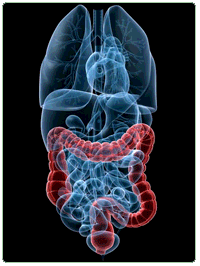What is a Colonoscopy?

A colonoscopy is a procedure that allows the examination of the entire colon and rectum. It is the best way to view the colon in detail and diagnose any problems such as colon cancer or colitis. During a colonoscopy, the doctor can take biopsies (tissue samples) or completely remove polyps. The procedure is performed using a thin, flexible and very sophisticated camera. Your gastroenterologist can pass different instruments through the camera to treat many conditions such as removing polyps or precancerous growths. Bleeding or abnormalities that overtime cause anemia can also be treated by colonoscopy. Dr. Mehdizadeh is an expert in colonoscopy and has performed thousands of procedures.
Who Should Have a Colonoscopy?
A colonoscopy is recommended as a routine screening procedure in anyone starting at the age 50 as part of colon cancer prevention. In African American patients, a screening colonoscopy may be appropriate starting at age 45. Colonoscopy is also performed earlier then age 50 if there is a family history of colon cancer. Keep in mind that in 2018, the American Cancer Society decreased the age for screening colonoscopy for the average population to 45. This is because we are seeing a higher colon cancer risk in younger individuals and earlier colonoscopy would save more lives. If you are between ages 45 and 50 and wish to have your colonoscopy earlier, contact us for an appointment to discuss your procedure.
A colonoscopy is also performed to diagnose problems with the colon when patients have symptoms such as abdominal pain, persistent diarrhea, changes in bowel habits, bleeding, signs of anemia (low blood count), or unintended weight loss. Contact us to schedule a cancer screening appointment, to discuss your risk factors for colorectal cancer, or to receive treatment if you experience any of the above symptoms.
How to Prepare for Colonoscopy
Dr. Mehdizadeh and his staff at Beverly Hills Digestive Care will explain the preparation process to you in detail. You will also receive written instructions and a prescription for medication that will clean your colon the night before. On the day prior to colonoscopy, you will be on a clear liquid-only diet and will need to fast overnight until your procedure.
What Happens During and After Colonoscopy?
Procedures are performed at a surgery center or at Cedars-Sinai Medical Center. Colonoscopy is generally performed with sedation. You will meet your anesthesiologist prior to the procedure. During the procedure, the colonoscope is introduced through the rectum and advanced through the colon. Air is insufflated during the procedure to improve visibility.
While the colonoscope is withdrawn carefully, the lining of your colon is examined, polyps are removed and any suspicious growths are sampled. The procedure usually takes 20-30 minutes. After the procedure, you will be observed in the recovery area until the sedation wears off. You will be able to eat soon after the procedure unless told otherwise by your doctor. Dr. Mehdizadeh will discuss any findings with you once you are fully awake but biopsy results will take a few days to return.
